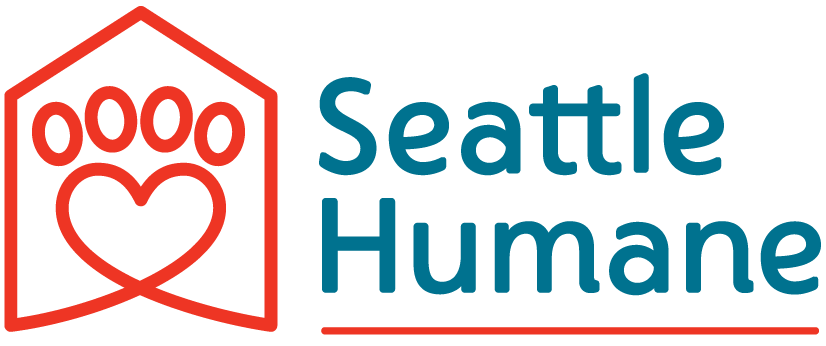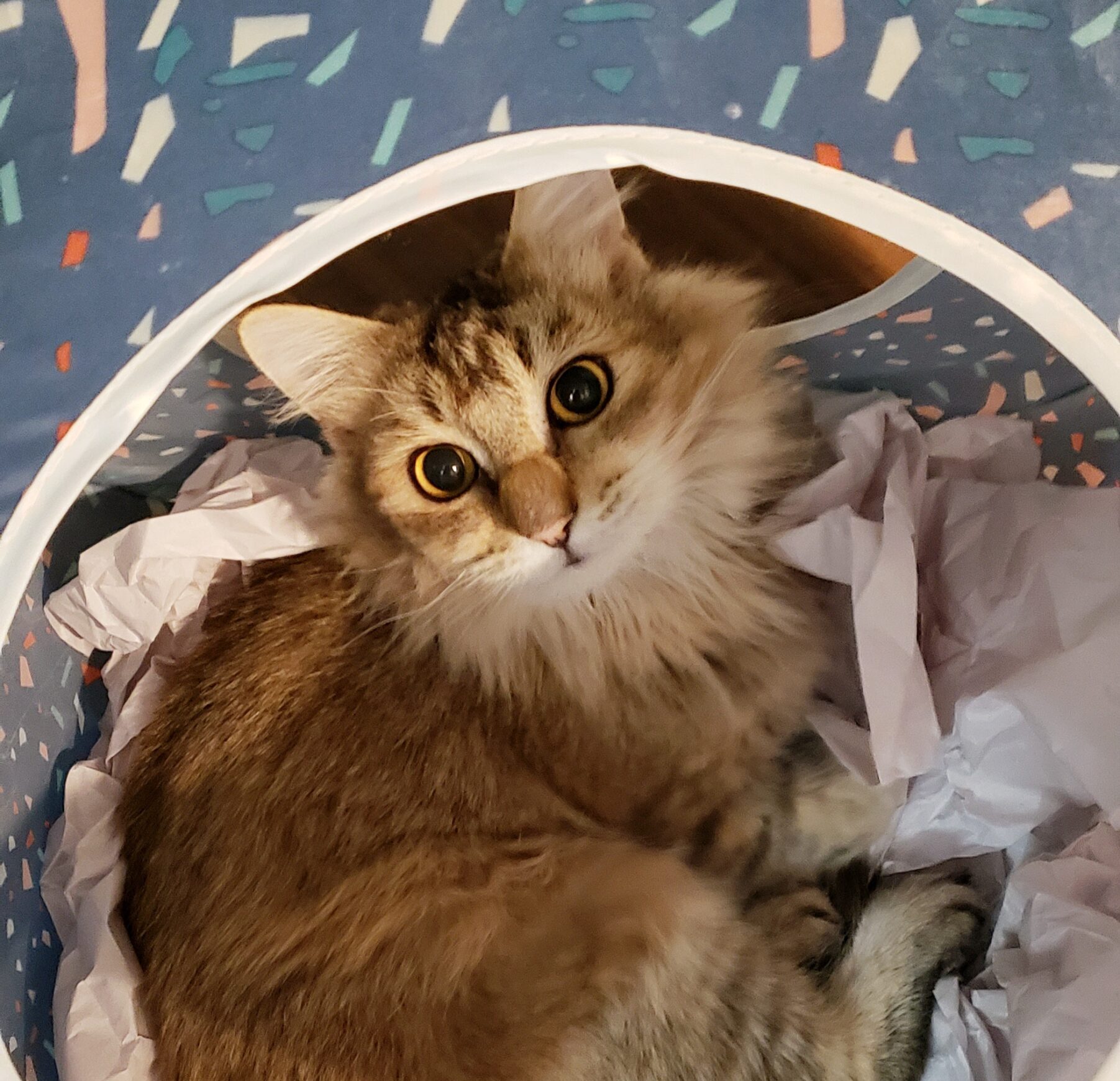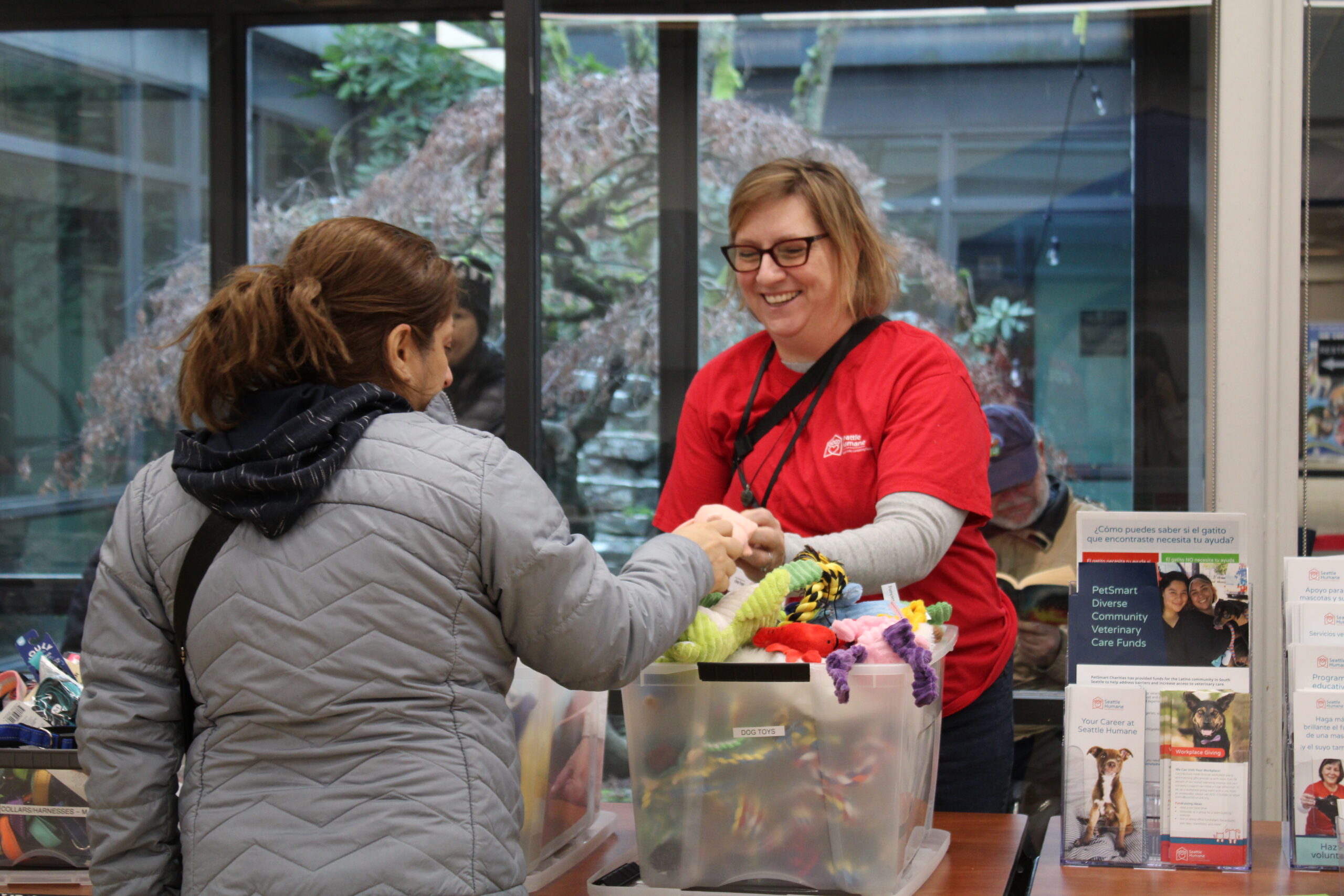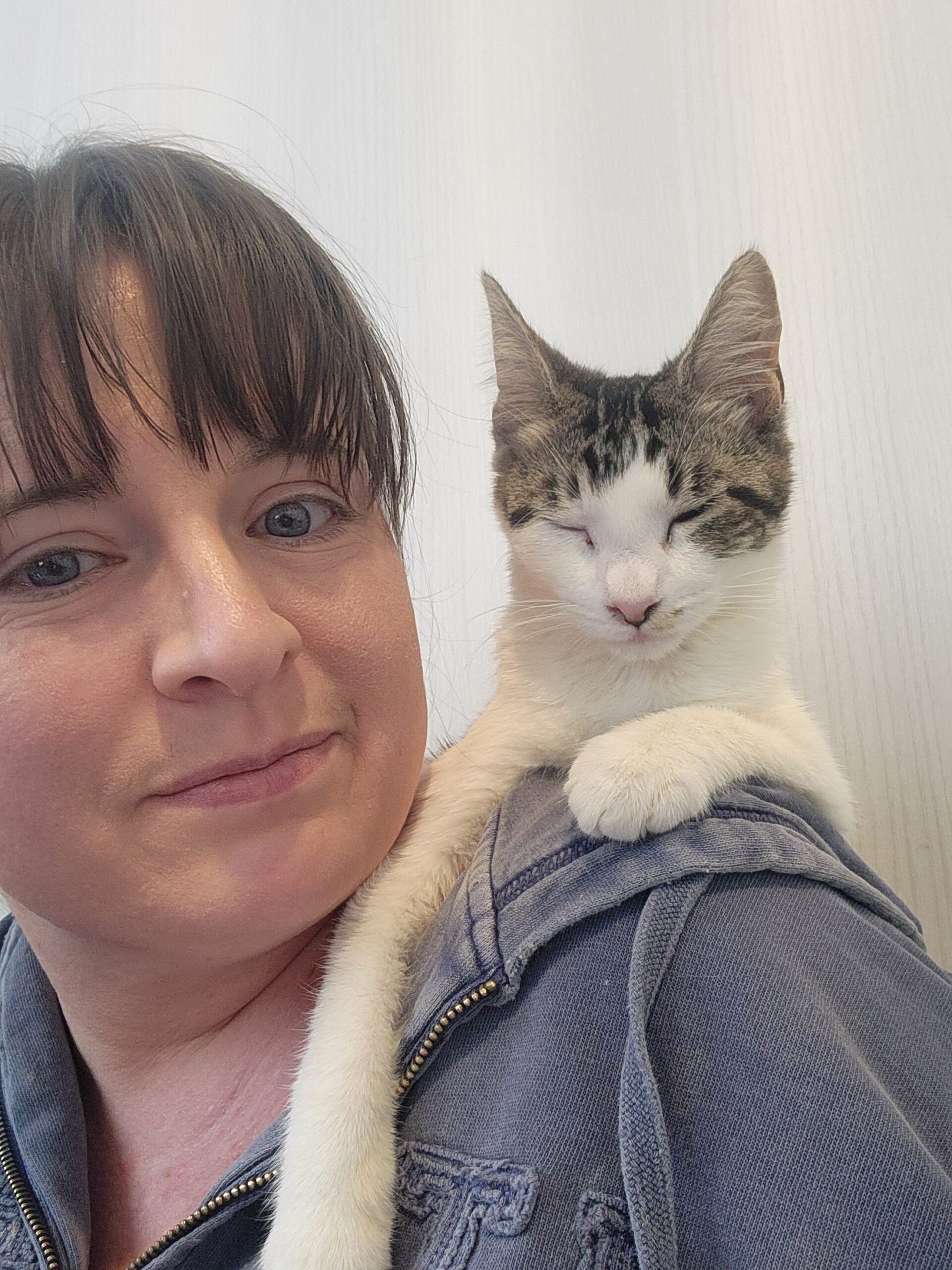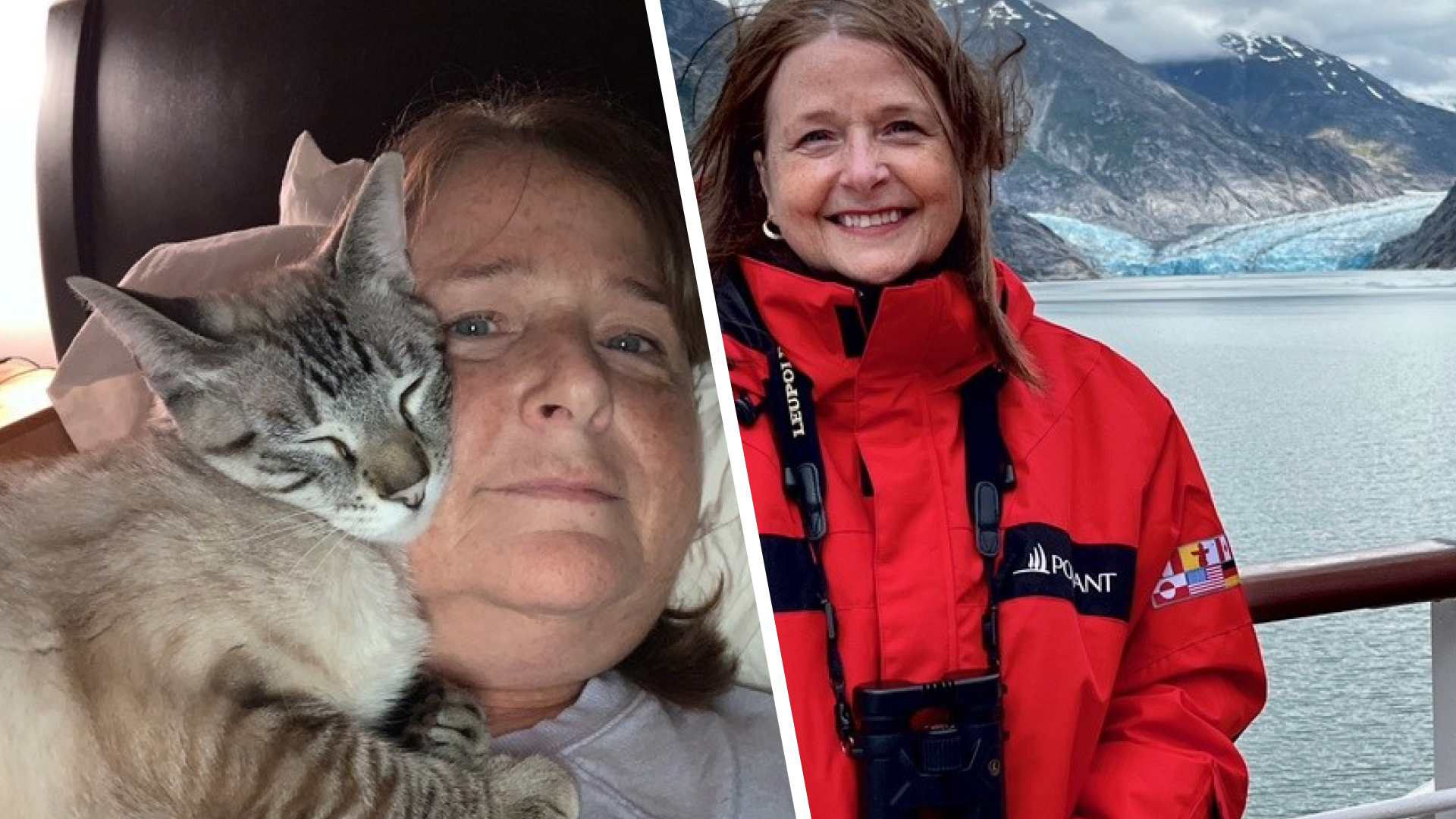Nonprofit evolving to meet needs of pets and their people for a lifetime

As Seattle Humane enters its 125th year of serving animals in our community, the shelter is sharing plans for how it will continue to support pets and the people who love them, now and for a lifetime. Finding families for adoptable pets remains a core function of the organization while Seattle Humane develops and expands programs that help keep pets out of the shelter and in loving homes.
CEO Christopher Ross called for creating a five-year strategic plan shortly after taking the helm at Seattle Humane this time last year. Over several months he led the creation of a guiding Strategic Vision, an aspirational document that paints a clear picture of where the organization sees itself in 2026 and beyond.
Seattle Humane’s five-year strategic vision reflects the evolving landscape in animal welfare and recognizes a community-focused approach is necessary in supporting pets and their owners. This proven approach keeps pets out of the shelter system entirely – pets who would otherwise be surrendered due to a lack of resources.
The nonprofit will continue delivering on its core purpose, working with the public and partner shelters to find adoptable pets new homes, utilizing its state-of-the-art veterinary clinic, behavioral support, animal care and adoption teams. They will also explore how to adapt existing resources, including the space at their Bellevue campus, to meet the needs of the animals and community in creative and innovative ways.
“These positive changes in the way organizations and experts in the field of animal welfare approach saving and serving companion animals were happening at the same time a new, world-class Seattle Humane facility was being constructed,” Ross said. “We have been refining our strategy to better align with best practices and adapting this beautiful facility to continue to meet the evolving needs in our community.”
A number of solutions proposed by Human Animal Support Services (HASS), National Animal Care & Control Association (NACA) and the ASPCA to divert pets out of the shelter system already exist at Seattle Humane, and several were deployed near the start of the COVID-19 pandemic, when many animal welfare organizations began responding to increased demand for community support.
“Adopting pets into loving homes is a wonderful and important service that Seattle Humane has been known for over the last century, a service we will continue to provide to the community,” Ross said. “In the coming years, we will also focus on making sure pet owners have access to the information, medical services and behavioral resources they need to keep their pets for a lifetime. Keeping pets out of the shelter system whenever possible through compassionate care is how we lift up our community and grow as a service organization.”
This new vision is supported by industry research. Findings by the ASPCA published in the Open Journal of Animal Sciences found that 26% of individuals who rehomed their pets said they did so because they could not afford veterinary care.
In that same study, pet owners making less than $50,000 a year were asked what might have helped them keep their pets, and 40% answered with free or low-cost vet care. Other services respondents felt would have helped included free or low-cost pet food, temporary pet care or boarding, assistance paying pet deposits for housing, and behavior training.
Seattle Humane is fostering pets for people in crisis through its SPOT (Supporting Pet Owners in Transition) program, and its Home To Home program provides people with the tools to rehome their pets on their own, keeping pets out of the shelter. Their Community Medicine program is providing pet owners with wellness care to help their pets stay happy and healthy at home. For other emergency expenses, including costly veterinary care, Seattle Humane is helping cover those costs through its Pet Owner Assistance Fund. In addition, Seattle Humane’s Pets for Life program helps people at risk of homelessness and living unhoused in the 98108 zip code with wellness checks, vaccinations, pet food and other supplies, with plans to expand the service area in the future.
When Handsome the dog needed emergency surgery earlier this year to remove bladder stones, his mom Sheila reached out to Seattle Humane’s Pet Resource Center and the Pet Owner Assistance Fund for help in covering a portion of the surgery. Today, Handsome is staying healthy — and home with the people who love him — with the support of the Pet Food Bank.
“Handsome is on a prescription diet. Keeping your dog healthy is very expensive,” Sheila said. “If I get low on food, I call them and get on their delivery schedule, and they just deliver it right to your door. Seattle Humane — they just stepped up to the plate.”
Seattle Humane is on track to begin implementing its new strategic plan to realize this collective vision for a more equitable, accessible and humane world in summer 2022.
“Adoptions will always be a central part of our work at Seattle Humane,” Ross said, “and our vision for the future is one where we continue to touch the lives of those pets and their families in positive ways for years to come. We are focused on solutions that make adoptions and our many community programs more accessible to pet owners in marginalized communities and resource deserts here in the Pacific Northwest.”
